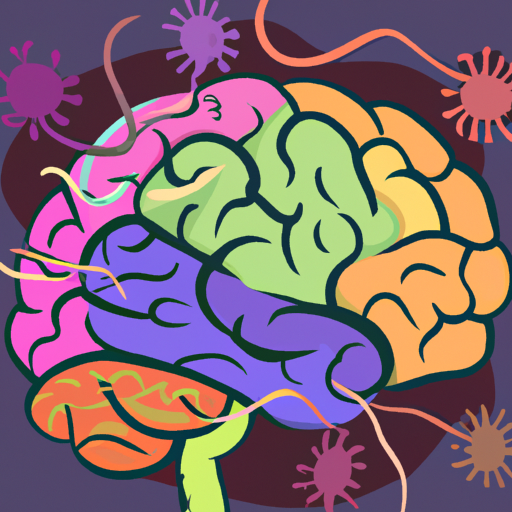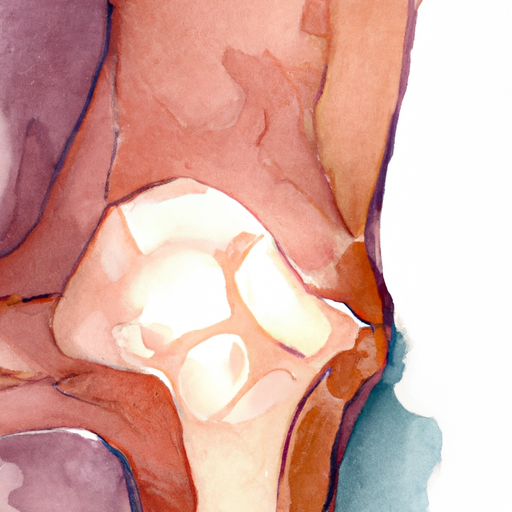Infections are a common occurrence in our daily lives, ranging from minor illnesses like the common cold to more severe conditions such as pneumonia or meningitis. While most people recover from these infections without any long-term complications, there is a subset of individuals who experience neurological complications as a result. These complications can range from mild symptoms like headaches or dizziness to more severe conditions like seizures or paralysis. In this article, we will delve into the world of neurological complications of infections, exploring their causes, symptoms, diagnosis, and treatment options. We will also explore the intriguing link between infections and neurological disorders, shedding light on the complex relationship between these two seemingly unrelated realms of medicine. Whether you are a medical professional seeking to expand your knowledge or an individual looking to understand the potential risks associated with infections, this article aims to provide valuable insights into this fascinating and important topic.
1) "Understanding Neurological Complications of Infections: Causes and Symptoms"
Neurological complications of infections can occur when a pathogen, such as a virus or bacteria, infiltrates the central nervous system, causing inflammation and damage to the brain and spinal cord. These complications can be severe and often require immediate medical attention.
The causes of neurological complications in infections can vary depending on the type of infection. Viral infections, such as herpes simplex virus, varicella-zoster virus, or HIV, are common culprits. Bacterial infections, such as meningitis or encephalitis, can also lead to neurological complications. In some cases, the infection itself directly affects the nervous system, while in others, the complications arise as a result of an overactive immune response to the infection.
Symptoms of neurological complications can vary widely depending on the specific infection and the affected area of the nervous system. Common symptoms include severe headaches, fever, neck stiffness, confusion, seizures, weakness or paralysis in certain body parts, difficulty speaking or understanding speech, and changes in behavior or personality. These symptoms may develop rapidly or gradually, depending on the progression of the infection.
Diagnosing neurological complications of infections often requires a multidisciplinary approach involving neurologists, infectious disease specialists, and other healthcare professionals. A thorough medical history, physical examination, and laboratory tests are typically conducted to identify the underlying infection and assess the extent of neurological damage. Imaging techniques, such as magnetic resonance imaging (MRI) or computed tomography (CT) scans, may also be used to visualize the affected areas of the brain or spinal cord.
Treatment of neurological complications usually involves addressing the underlying infection and managing the symptoms. Antibiotics or antiviral medications are commonly prescribed to eliminate the causative pathogen. In severe cases, hospitalization may be necessary to provide supportive care, such as intravenous fluids, pain management, and close monitoring of vital signs.
Additionally, anti-inflammatory drugs may be administered to reduce inflammation and swelling in the nervous system. In some cases, immunomodulatory therapies, such as corticosteroids or intravenous immunoglobulin, may be used to regulate the immune response and minimize further damage.
Early detection and prompt treatment are crucial in preventing long-term neurological complications and improving outcomes. If you or someone you know experiences any symptoms suggestive of neurological complications during or after an infection, it is essential to seek medical attention immediately. Timely intervention can help minimize the potential for permanent neurological damage and enhance the chances of a successful recovery.
In conclusion, neurological complications of infections can have significant consequences on an individual’s health and quality of life. Understanding the causes and symptoms of these complications is essential for timely diagnosis and appropriate treatment. By raising awareness about this topic, we can ensure that individuals receive the necessary medical care and support to mitigate the neurological impact of infections.
2) "Diagnosing and Treating Neurological Complications Caused by Infections"
Diagnosing and treating neurological complications caused by infections is a challenging task for healthcare professionals. Due to the wide range of symptoms and potential causes, accurate diagnosis is crucial to ensure appropriate treatment and prevent further damage to the nervous system.
One of the primary methods used in diagnosing these complications is through a thorough medical history and physical examination. The healthcare provider carefully evaluates the patient’s symptoms, looking for any neurological deficits or abnormalities. They may also inquire about recent infections or other potential risk factors. Additionally, laboratory tests such as blood tests, cerebrospinal fluid analysis, and imaging studies like MRI or CT scans can provide valuable information about the underlying cause of the neurological complications.
When it comes to treatment, the approach depends on the specific infection causing the neurological complications. In some cases, treating the underlying infection may be sufficient to alleviate neurological symptoms. Antibiotics, antiviral medications, or antifungal drugs may be prescribed to target the infection and prevent further damage to the nervous system.
However, in more severe cases, additional interventions may be necessary. For instance, if the neurological complications cause inflammation of the brain or spinal cord, corticosteroids may be administered to reduce the inflammation and minimize damage. Pain medication, physical therapy, and occupational therapy may also be recommended to manage symptoms and aid in the recovery process.
It is important to note that early diagnosis and prompt treatment significantly improve the prognosis of neurological complications caused by infections. Delayed or inadequate treatment may lead to irreversible damage and long-term complications. Therefore, it is essential for healthcare professionals to remain vigilant and consider neurological complications as a potential consequence of certain infections.
Furthermore, preventive measures play a crucial role in reducing the incidence of neurological complications. Vaccinations against certain infections, such as meningitis or encephalitis, can help prevent the onset of these complications. Additionally, practicing good hygiene, avoiding close contact with infected individuals, and taking appropriate precautions when traveling to areas with high infection rates can significantly reduce the risk of developing neurological complications.
In conclusion, diagnosing and treating neurological complications caused by infections requires a comprehensive approach that involves a detailed medical history, physical examination, and various laboratory tests. Prompt and appropriate treatment, targeting the underlying infection, is crucial to prevent further damage to the nervous system. Additionally, preventive measures, including vaccinations and hygiene practices, are vital in reducing the incidence of these complications. By understanding the complexities of these neurological complications, healthcare professionals can ensure timely intervention and improve patient outcomes.
3) "Exploring the Link between Infections and Neurological Disorders"
In recent years, there has been a growing body of research exploring the link between infections and neurological disorders. It is now widely recognized that certain infections can lead to various neurological complications, causing significant challenges for both diagnosis and treatment.
One of the most well-known examples of this connection is seen in the case of meningitis, an infection that causes inflammation of the protective membranes surrounding the brain and spinal cord. Bacterial meningitis, in particular, can have severe neurological consequences if not promptly diagnosed and treated. The bacteria causing the infection can directly invade the central nervous system, leading to symptoms such as severe headaches, neck stiffness, and even seizures. If left untreated, meningitis can result in long-term complications, including cognitive impairments and motor deficits.
Other infections, such as viral encephalitis, can also have profound neurological effects. Encephalitis occurs when the brain becomes inflamed due to viral infection. Common symptoms include high fever, headache, confusion, and even altered consciousness. In severe cases, it can cause seizures, paralysis, and cognitive decline. The viruses responsible for encephalitis, such as herpes simplex virus, West Nile virus, and measles virus, can directly damage brain tissue, leading to long-lasting neurological impairments.
The causes of these neurological complications are multifactorial. In some cases, the infection itself triggers an immune response that inadvertently damages the nervous system. The release of inflammatory mediators, such as cytokines, can lead to neuronal injury and inflammation. Additionally, some infectious agents have the ability to invade and replicate within nerve cells, causing direct damage to the nervous system. The exact mechanisms underlying these processes are still being studied, but the interplay between the immune system and the invading pathogens seems to play a crucial role in the development of neurological complications.
Diagnosing infections with neurological manifestations can be challenging, as the symptoms may overlap with other neurological conditions. However, advancements in diagnostic techniques, such as cerebrospinal fluid analysis and neuroimaging, have greatly improved the accuracy of diagnosis. These tools allow healthcare professionals to identify the specific infectious agent responsible for the neurological symptoms, enabling targeted treatment strategies.
Treatment of neurological complications associated with infections typically involves a combination of antimicrobial therapy, supportive care, and management of symptoms. Prompt initiation of appropriate antibiotics or antiviral medications is crucial in preventing further damage to the nervous system. Supportive care, including intravenous fluids, pain management, and control of seizures, aims to alleviate symptoms and promote recovery. In some cases, rehabilitation therapies may be necessary to address any residual neurological deficits.
In conclusion, the link between infections and neurological disorders is a complex and evolving field of study. Understanding the mechanisms by which infections lead to neurological complications is essential for accurate diagnosis and effective treatment. Further research in this area will not only enhance our knowledge of infectious diseases but also pave the way for the development of novel therapeutic approaches to mitigate the neurological sequelae associated with infections.


